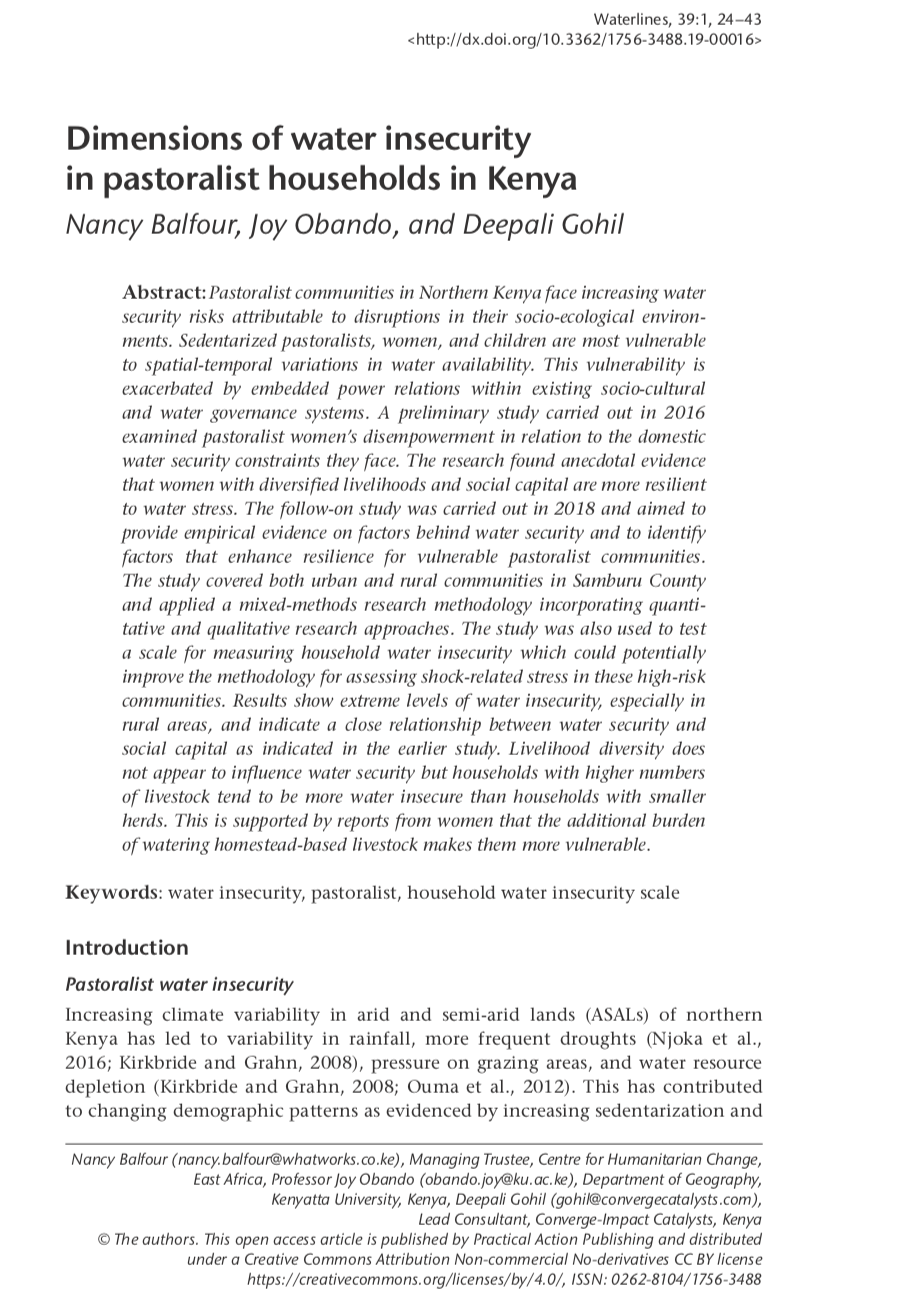Authors: Nancy Balfour, Joy Obando, and Deepali Gohil
Pastoralist communities in Northern Kenya face increasing water security risks attributable to disruptions in their socio-ecological environments. Sedentarized pastoralists, women, and children are most vulnerable to spatial-temporal variations in water availability.
A preliminary study carried out in 2016 examined pastoralist women’s disempowerment in relation to the domestic water security constraints they face. The research found anecdotal evidence that women with diversified livelihoods and social capital are more resilient to water stress. This follow-on study aimed to provide empirical evidence on factors behind water security and to identify factors that enhance resilience for vulnerable pastoralist communities, covering both urban and rural communities in Samburu County.

